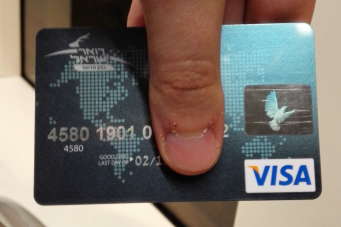The name on card is not used when processing credit card payments. Paypal does not ask the user to enter the name on card when saving a card to the "wallet", while Amazon.com does.
The benefit of asking for it is that the user can feel more "secure" because we are asking for more details. With out the name on card field, the user might think: Hey, does that mean anyone can just grab my card number and the expiration and they can use it? This is taking into account the fact that CCVs and Address Verification can be turned off by the merchant.
The obvious advantage of not having the name on card field is that it's faster. 1 less field to fill in is always better when it comes to form design.
Should we ask for the name on card when users are paying/storing credit card details?
As an aside: We do not plan to store any of the card holder details and billing addresses in our system at the moment (that will happen when be grow to be a huge company and that becomes cost effective and feasible ;)). These will all be stored with the payment processor and details will be passed using direct post/transparent redirect, so that they never ever hit our server.


Mr John Z Smithwhere as in paypal, you can haveJohn Smithas the account name. I have also made transactions (paypal checkouts) where I enter the card on the spot and used a card that did not belong to me and there wasn't anyway to fill in the card holder name.